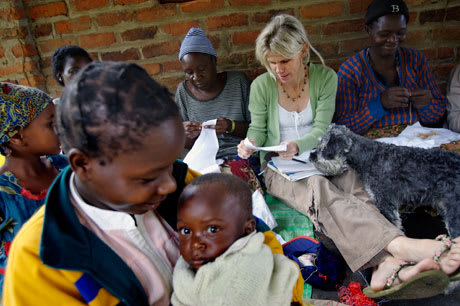Under the revised "land reform" laws implemented by Zimbabwe president Robert Mugabe in 2005, all farmland in the country owned by whites is to be reclaimed and distributed back to the black population. However, elderly farmer Mike Campbell has no plans to leave the farm he legally owns, and has efficiently maintained for 20 years. An increasing amount of pressure and threats are put on Campbell and his family (including son in-law Ben Freeth), with the reality of violent eviction and possibly even murder looming.
Extraordinarily shot, much of the footage in the documentary was filmed covertly. This is a miracle in itself, made even more incredulous by how powerful the film is as a whole. Directors Andrew Thompson and Lucy Bailey chronicle these fear tactics with the tension of a Hollywood thriller but with none of the bombast or cliché.
Campbell and his family are presented exactly the way an audience will appreciate: as normal, average people faced with a decision to either flee their home in fear or stand up to a corrupt government. Their battle becomes representative of the entire racist land struggle in Zimbabwe, and how peaceful resistance in the face of violence can be the most powerful act.
The quietly likable Campbell is best shown in an early scenes, when he is informed of trespassers on his land late one evening. "I'll go out when I finish my drink," he says matter-of-factly, before retrieving an extremely cool-looking vintage rifle and setting off into the maize crops to flush out the intruders.
Whatever doesn't kill Campbell and his clan most certainly make them stronger, and with very little narrative assistance, Thompson and Bailey have beautifully shaped Campbell's tale into a truly compelling life story.
Extraordinarily shot, much of the footage in the documentary was filmed covertly. This is a miracle in itself, made even more incredulous by how powerful the film is as a whole. Directors Andrew Thompson and Lucy Bailey chronicle these fear tactics with the tension of a Hollywood thriller but with none of the bombast or cliché.
Campbell and his family are presented exactly the way an audience will appreciate: as normal, average people faced with a decision to either flee their home in fear or stand up to a corrupt government. Their battle becomes representative of the entire racist land struggle in Zimbabwe, and how peaceful resistance in the face of violence can be the most powerful act.
The quietly likable Campbell is best shown in an early scenes, when he is informed of trespassers on his land late one evening. "I'll go out when I finish my drink," he says matter-of-factly, before retrieving an extremely cool-looking vintage rifle and setting off into the maize crops to flush out the intruders.
Whatever doesn't kill Campbell and his clan most certainly make them stronger, and with very little narrative assistance, Thompson and Bailey have beautifully shaped Campbell's tale into a truly compelling life story.
